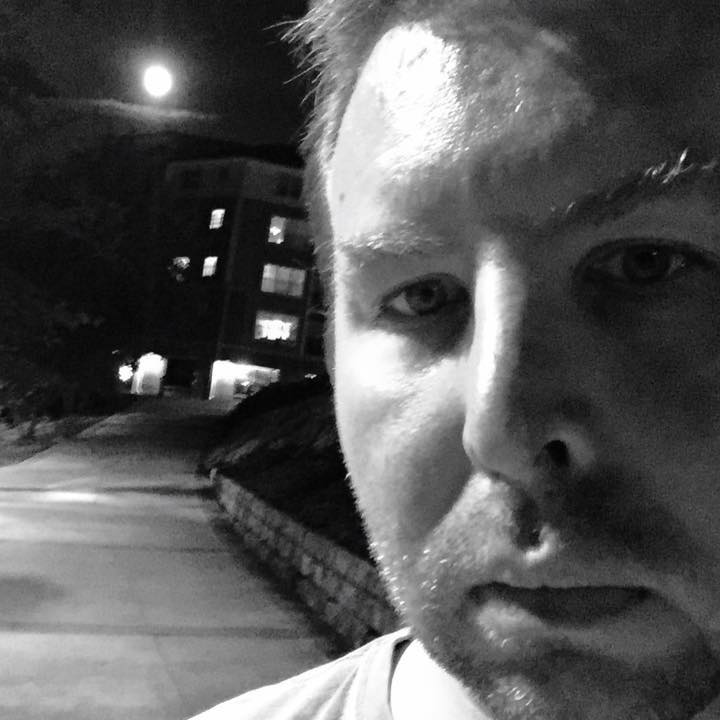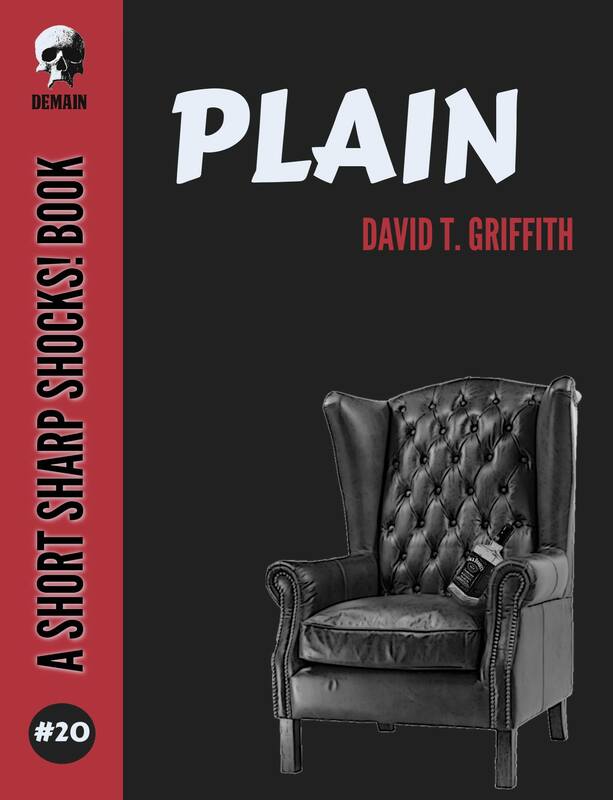|
|
|
Book 20 in the Short Sharp Shocks! is Plain by David T. Griffith. Dean and David have in the past worked together on a number of projects (particularly for Western Legends) but it had been a little while. Prior to publication, they sat down and chatted.
DEMAIN PUBLISHING: Hello David, hope life isn’t treating you too badly right now. So – Plain, tell us a little about it if you will. DAVID T. GRIFFITH: Hi. Sure. Plain started out as a four-page story in which I challenged myself to make a ridiculously mundane character fascinating. I wanted something more than a slice of life short story, so I added the voices Essy hears to create an unhealthy catalyst to her story. A traumatic event in her past that she orchestrated helped establish her psychological and confidence issues and serve as the driving force at the core of the story. It all grew from there. DP: It’s certainly a worthy inclusion to the SSS! series. I personally thought you handled those scenes with Essy’s ‘voices’ (so to speak) very skilfully. Were they the only challenges you faced when writing it? DTG: I’ve been working on Plain on and off for quite a long time. I would dive in and write a few hundred or thousand words and then let the story sit dormant for several months following each draft. I was never certain about my intentions for the story. Was it going to be a ghost story or psychological thriller? Would it remain a short story or grow into a novella? That led to my biggest challenge in ending the story. I explored different directions before finding the conclusion that felt right, which meant omitting an entire section that is set after the ending I finally established. I wanted to leave the door open to write about Essy again without ending the story abruptly. I feel like I accomplished that. DP: I’m glad you mentioned that actually because it would have been so easy to have ended the story differently – I won’t give anything away don’t worry – but I’m glad that the door has been left ajar...I was wondering whether any of the characters were based on you? DTG: I’d like to think I am the man wearing the blazer over his pajamas while walking his little dog each early morning, whom Essy would see on her walk to work, wondering why this woman was so peculiar. There are a few references to my personal life – the hardware store descriptions and the setting in Connecticut. DP: Ah, the Alfred Hitchcock cameo hey? I’m writing something right now and I keep putting ‘Dean’ into the story then deleting him...I love dropping in little hints that a character might be me...vain I suppose...we’ve worked together before but for those that haven’t read your work yet, would you say you have a specific style? DTG: I like to think I’m developing my own writing style a bit further with each new story. In my early writing days my biggest challenge was always ‘killing my darlings’, that is, deleting sentences, paragraphs, or entire scenes I loved in order to tell the right story. I’ve become far more brutal with my self-editing. Perhaps Essy’s violent streak is a manifestation of such. DP: That’s a good point actually...I wonder...as I’ve said in previous interviews I’m starting to bend towards the Hemingway approach of short sharp sentences...it’s not always achieved, but I’m getting there. With that in mind, which authors (or books) have influenced you? DTG: I have several favourite authors whom I enjoy for all sorts of reasons, but I think the following three authors each hold a strong influence over my current writing style and in what I strive to achieve. I am heavily drawn to Cormac McCarthy’s thorough and inventive writing style. Every single word, every bit of punctuation – or lack thereof – is absolutely deliberate. Not a single detail feels out of place. The work is dark and compelling, the imagery vivid, and the scenes flood every sense without overwhelming the reader. I love how his characters’ actions and behaviors are intertwined with the scene descriptions. On a different part of the dark fiction spectrum, I love the simplicity in Stephen King’s word usage and prose. I’m inspired by his ability to tell a story with such ease while painting horrific scenes and capturing subtle nuances of complex human behaviors. Lastly, I enjoy George Saunders’ ability to incorporate humor and absurdity in his otherwise dark and serious subject matter. He balances these qualities perfectly creating robust characters and stories. DP: Ah, Cormac McCarthy! I need to read him, I’ve got a couple of his on by TBR pile – I’ve heard so many great things about his work – haven’t had much time for reading (fiction) right now as my head is buried in a couple of historical projects and a proposed tv series which is an American political...what next for you? Anything you can share with us? DTG: I go with the flow and I’m always looking for the next submission opportunity. I’m working on a few new stories now and considering writing a full novel following an esoteric concept I’ve been playing with on my daily job commute. DP: A that’s really cool...I’d love to know more about your ‘esoteric concept’ in due course. Writer’s block – you ever suffer from it? DTG: I’m pretty certain writer’s block is a false condition. It’s more a fear of committing to an idea and developing it. I work through this fear of story commitment on a regular basis. I hate it, but it’s a worthwhile challenge. DP: Intriguing...I think that sometimes you can come up with an amazing idea but suddenly that idea becomes so huge that it becomes nigh on impossible to put pen to paper / finger to keypad because you are now frightened that you won’t be able to do that idea justice. The problem then comes that the idea won’t go away – it just gets bigger and better and the terror of not being able to ‘let it out’ is too much...bleedin’ hell...I’m coming out in a cold sweat...to help you do you write an outline before you start or just go for it? DTG: I just go for it and let stories develop organically. I almost never know where one will go or how it’s going to end. The characters’ development and consequences of their actions guide me. DP: Yeap. I’m writing something write now which is very specific, it’s about 23 individual characters with a very specific word count for each character – anyway, I had a general idea / theme for the story but it wasn’t until I’d written nine or ten characters that one of them said something and suddenly I knew exactly what the story was about and where it was going. Do you have a favourite theme (or genre) that you return to time and time again? DTG: I’ve always been a fan of noir and gritty realism. Looking back I have learned these genres inform the core of my stories. I love to dig into characters’ psychological issues and dysfunctional relationships, and explore how these characters are affected by the outside world while confronting much larger, horrific situations. There is also the body horror theme that appears regularly in my stories in varying degrees. I draw from my experiences with a few major surgeries and the subsequent recoveries. DP: I love body horror and want to explore that myself in due course – cheers for the reminder. Okay, so I’m a film producer – pitch me Plain. DTG: An alcoholic, repressed lesbian just released from the psych hospital is both haunted and driven to kill by the ghosts of those she has hurt. DP: And if you were writing a synopsis for a newspaper... DTG: I would use the following blurb: Essy is released from a psychiatric hospital after orchestrating her mother’s death a few years earlier. She moves to the neighboring town, where she can continue therapy with her psychiatrist. In pursuit of an idealistic happiness and normalcy, she finds herself both haunted and driven by those she hurt. DP: And finally, tell us something which readers might find surprising about you? DTG: I hate eggs as food. Great to speak to you again David – all the best with Plain! If you would like to connect directly with David: http://dtgriffith.com Twitter Address: @dtgriffith
0 Comments
Leave a Reply. |
CategoriesArchives
July 2024
AuthorDean M. Drinkel |


